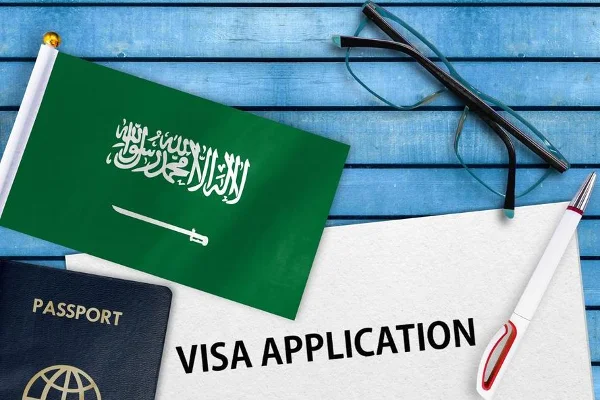In a significant policy shift, Saudi Arabia has announced stricter work visa regulations for Indian workers, affecting hundreds of thousands of labourers who rely on the Gulf Kingdom for employment. This move is part of Saudi Arabia’s broader vision to overhaul its labour market and reduce dependency on foreign labour, while simultaneously seeking to prioritize local employment. For India, a nation that has long been a key source of migrant workers to Saudi Arabia, these changes could have substantial economic and social repercussions.
Saudi Arabia’s relationship with migrant labour has been shaped by its need to fuel its rapidly expanding infrastructure, energy, and construction sectors. For Indian workers, particularly those in low-wage jobs, the Kingdom has historically been a major destination for employment, offering competitive salaries and remittance opportunities. However, these new visa regulations, which include restrictions on certain industries and enhanced documentation requirements, signal a shifting paradigm that could challenge the traditional flow of Indian migrant labour.
In this article, we explore the implications of these tighter work visa rules for Indian workers, the impact on bilateral relations, and the long-term consequences for both the Kingdom and India.
Saudi Arabia’s Vision 2030 and Its Impact on Migrant Labour
Saudi Arabia’s new work visa restrictions are part of the government’s ambitious Vision 2030, a long-term initiative led by Crown Prince Mohammed bin Salman to diversify the Kingdom’s economy away from its heavy reliance on oil exports. One of the central pillars of Vision 2030 is the promotion of “Saudization”, a policy that aims to reduce unemployment among Saudi nationals by creating more job opportunities for them within the Kingdom. The government’s plan includes a series of labour reforms designed to encourage the employment of Saudi citizens in industries traditionally dominated by foreign workers, including construction, hospitality, retail, and domestic work.
As part of this plan, Saudi authorities have introduced measures to restrict the influx of migrant labour, particularly from countries like India, Pakistan, and Bangladesh, where large numbers of low-skilled workers have been employed in sectors such as construction, agriculture, and domestic work. These reforms are expected to reduce the overall number of foreign workers in the Kingdom by creating a more competitive labour market for Saudi nationals.
While these changes may benefit local workers, they also pose significant challenges for countries like India, which has historically sent a large proportion of its workforce to the Gulf. According to the Ministry of External Affairs, approximately 2.7 million Indian workers are currently employed in Saudi Arabia. Many of these workers have sent back substantial remittances, playing a vital role in the Indian economy, particularly in states like Kerala, Andhra Pradesh, and Uttar Pradesh.

Key Changes in Saudi Work Visa Rules
The new regulations for Indian workers are multifaceted, involving changes in visa types, employment terms, and work permit processes. Here’s a breakdown of the key changes:
1. Restricted Access to Certain Sectors
One of the most significant changes is the restriction of work visas for Indian labourers in certain sectors, especially in low-wage jobs. Saudi authorities have placed tighter controls on visa issuance for industries like construction, domestic work, and hospitality, sectors where Indian workers have traditionally found employment. This is likely to have a direct impact on low-skilled labourers from India, who make up a large proportion of the migrant workforce.
In some cases, the number of visas issued for certain industries will be capped, meaning that fewer workers will be able to enter the Kingdom for these roles. The shift aligns with the Saudization policy, which seeks to replace foreign workers with Saudi nationals in specific sectors.
2. Increased Documentation and Vetting Procedures
The process of obtaining a work visa for Saudi Arabia has become more stringent. Indian workers seeking employment in the Kingdom now need to provide more comprehensive documentation, including proof of prior employment history, health checks, criminal background verification, and certifications of skills in the relevant trade. These additional requirements will likely result in longer processing times and increased costs for workers.
3. Temporary Work Visas and Contracts
Saudi Arabia has also introduced temporary work visas, which allow foreign workers to stay for a shorter period before requiring renewal or re-application. Indian workers may find themselves in a situation where their employment contracts need to be renewed more frequently, potentially leading to job insecurity and disruptions in their plans for long-term employment in Saudi Arabia.
This shift could deter some workers from pursuing opportunities in the Kingdom, especially those who prefer stable, long-term employment. While temporary work arrangements are common in other countries, the lack of job permanence may not be appealing to Indian workers who rely on Saudi Arabia as a consistent source of employment and income.
4. Higher Sponsorship Fees and Work Permit Costs
The Saudi government has also implemented higher sponsorship fees for foreign workers. Previously, employers bore the brunt of these fees, but now they are expected to pass the costs on to migrant workers. This will increase the financial burden on Indian workers, especially those in lower-paying jobs.
With the hike in work permit costs, many workers may find it difficult to afford the upfront fees associated with employment in Saudi Arabia. For those in lower-skilled positions, the cost of securing a visa could become prohibitive, making it harder to enter the Kingdom for work.

Economic and Social Implications for Indian Workers
The tightening of work visa rules by Saudi Arabia will have wide-ranging economic and social consequences, both for the Indian migrant workers in the Kingdom and for their families back home.
1. Impact on Remittances
India has been the largest recipient of remittances globally, with Saudi Arabia being a major source of these funds. According to the Reserve Bank of India, in 2020, India received approximately $83 billion in remittances, with a significant portion coming from the Gulf region. The potential reduction in the number of Indian workers able to secure employment in Saudi Arabia could lead to a decrease in remittance inflows, particularly for states that rely heavily on Gulf money.
This reduction could put pressure on the financial stability of families in India who depend on these funds for their day-to-day expenses, education, healthcare, and other needs. The loss of income from abroad could affect local economies, particularly in rural areas.
2. Job Security and Uncertainty
For the workers already in Saudi Arabia, the tightening of visa rules may lead to heightened job insecurity. Temporary visas, combined with higher costs and more rigorous documentation requirements, could make it more difficult for workers to maintain their employment status. Many workers are already facing uncertain futures as employers in the Kingdom adjust to the new regulations and attempt to comply with the Saudization agenda.
Additionally, workers who have been in the Kingdom for years may be forced to leave if their visas are not renewed or if they are unable to meet the new requirements. This uncertainty could create a sense of instability for Indian migrant workers and their families.
3. Increased Competition from Other Nations
With Saudi Arabia seeking to reduce its dependence on foreign labour, Indian workers may find themselves competing with nationals from other countries, particularly from regions like Africa and Southeast Asia, where labour is more affordable. While India remains a key supplier of skilled and unskilled workers, its position could be weakened by increasing competition.
The Broader Impact on India-Saudi Relations
While the changes in work visa policies will certainly affect the flow of Indian labour to Saudi Arabia, it is also essential to consider the broader diplomatic implications of these shifts. India and Saudi Arabia share strong bilateral ties, particularly in areas such as trade, security, and energy. However, changes in migration policies could strain these relations, as the labour movement is a crucial aspect of the overall relationship.
Saudi Arabia’s labour reforms may prompt India to reassess its approach to migration and labour agreements with the Kingdom, focusing on diversifying the types of skills and expertise being exported. India could also look to strengthen its relationship with other Gulf countries, such as the UAE and Qatar, as part of a broader strategy to secure employment opportunities for its workers.
Conclusion
The tightening of Saudi Arabia’s work visa rules for Indian workers signals a shifting labour landscape in the Kingdom. While the Saudization policy is designed to reduce dependency on foreign labour, it may have far-reaching consequences for Indian workers and the broader India-Saudi relationship. The reduction in remittances, increased job insecurity, and the potential rise in competition for jobs could challenge India’s labour export strategy.
For India, adapting to these changes will require strategic planning, including expanding labour opportunities in other countries and diversifying the skills and expertise of its migrant workforce. As Saudi Arabia moves forward with its Vision 2030, the future of Indian workers in the Kingdom may be reshaped, but with resilience and adaptability, both countries can navigate this new era of labour migration.











